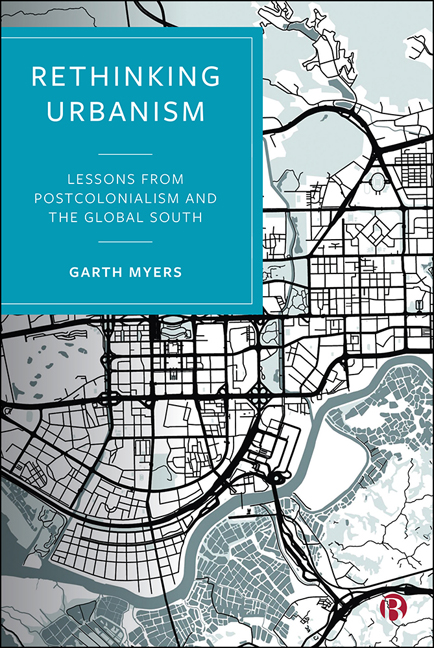Book contents
- Frontmatter
- Dedication
- Contents
- List of Figures
- List of Acronyms
- Glossary of Foreign Terms
- Acknowledgments
- Preface
- Introduction: Rethinking Urbanism from the South
- 1 Southern Processes of Planetary Urbanization in Hartford
- 2 Villages in the City: Patterns of Urbanization in the Pearl River Delta, Dakar, and Zanzibar
- 3 The Useful and Ornamental Landscapes of British (Post)colonialism
- 4 Submarine Urbanism: Cities People Make in ‘the Here and the Elsewhere’
- 5 ‘The Whole World Is Made in China’: Products and Infrastructures of Dis/connection
- 6 Urban Politics and Policy in a Southern Urban Planet
- Epilogue
- References
- Index
2 - Villages in the City: Patterns of Urbanization in the Pearl River Delta, Dakar, and Zanzibar
Published online by Cambridge University Press: 03 March 2021
- Frontmatter
- Dedication
- Contents
- List of Figures
- List of Acronyms
- Glossary of Foreign Terms
- Acknowledgments
- Preface
- Introduction: Rethinking Urbanism from the South
- 1 Southern Processes of Planetary Urbanization in Hartford
- 2 Villages in the City: Patterns of Urbanization in the Pearl River Delta, Dakar, and Zanzibar
- 3 The Useful and Ornamental Landscapes of British (Post)colonialism
- 4 Submarine Urbanism: Cities People Make in ‘the Here and the Elsewhere’
- 5 ‘The Whole World Is Made in China’: Products and Infrastructures of Dis/connection
- 6 Urban Politics and Policy in a Southern Urban Planet
- Epilogue
- References
- Index
Summary
Introduction
Urban theory still has a ‘Southern’ problem, despite two decades of sustained critique of global-North-centered theories of urbanization. The problem may be different in different schools of thought, but most paths leave an enduring lacuna where global South intellectual understandings and conceptualizations of urbanization and globalization processes would otherwise drive scholarly analysis. In the previous chapter, indigenous, postcolonial, and Southern approaches and ideas helped to ‘re-member’ the historical geography of the urbanization process for Hartford, its ‘dis-membered’ indigeneity, its Blues epistemology, its people-as-infrastructure, its trans-territorial connections. The goal in this chapter is to explore an urban comparison across the global South, from southern China to two urban places in Africa (Dakar and Zanzibar), conceptualizing from outside global North frameworks when looking at land-use patterns in urbanization. I assess the utility of the intertwined Chinese ideas of chengzhongcun, chengbiancun, and chengwaicun, translated as a village ‘inthe-city’, ‘on-the-city-suburb-edge’, and ‘in the suburb’ in English, in scholarship analyzing rapid urbanization in China's Pearl River Delta over the last 40 years, for analyzing similarly rapid processes in sub-Saharan Africa over a similar period. The chapter ends with a segment exploring comparability for the terms and patterns in Port of Spain, San Juan, and Hartford.
This book aims to highlight the importance of Southern urban thinking and insights for developing a truly global urban studies. This importance resonates in many contexts – even in places conventionally mapped with the North – but it is surely evident when studying Chinese or Sub-Saharan African urbanization. Urbanizing processes in China and Africa are quite old, and quite planetarily far back in time, predating today's neoliberal globalization (which is itself far too often understood only from global North conceptualizations; see Carmody and Owusu 2016). There is ample latitude for detailing the specificities of globalizing processes over centuries, as Meier (2016) and Prestholdt (2008) have done for the Swahili coast. The Pearl River Delta (PRD) – including Hong Kong, Foshan, Guangzhou, Dongguan, Shenzhen, Macau, Zhuhai, Huizhou, Jiangmen, Zhaoqing, and Zhongshan, a collection of cities also identified as the Greater Bay Area (GBA) – has been a key node connecting China with the world for centuries.
- Type
- Chapter
- Information
- Rethinking UrbanismLessons from Postcolonialism and the Global South, pp. 49 - 76Publisher: Bristol University PressPrint publication year: 2020



